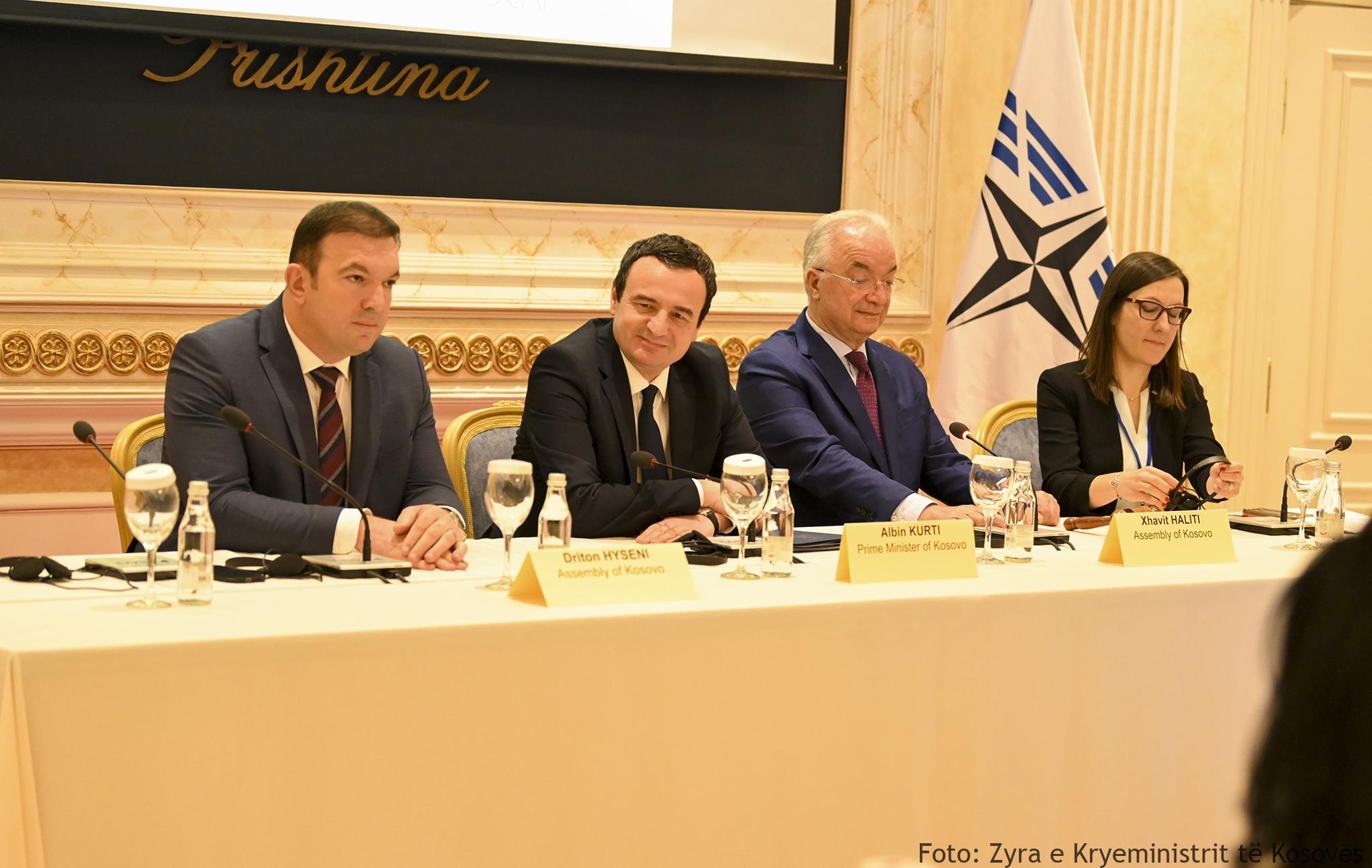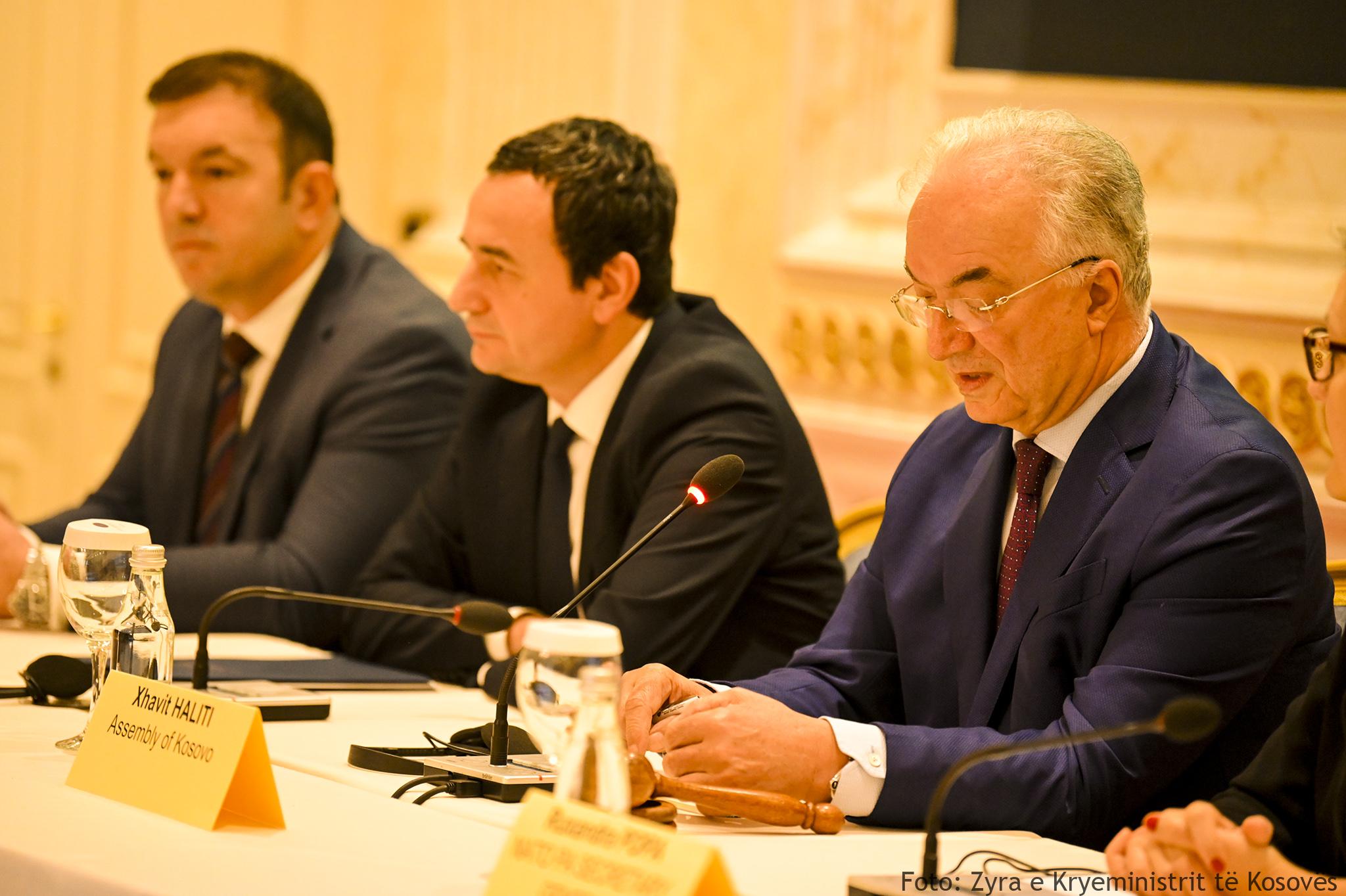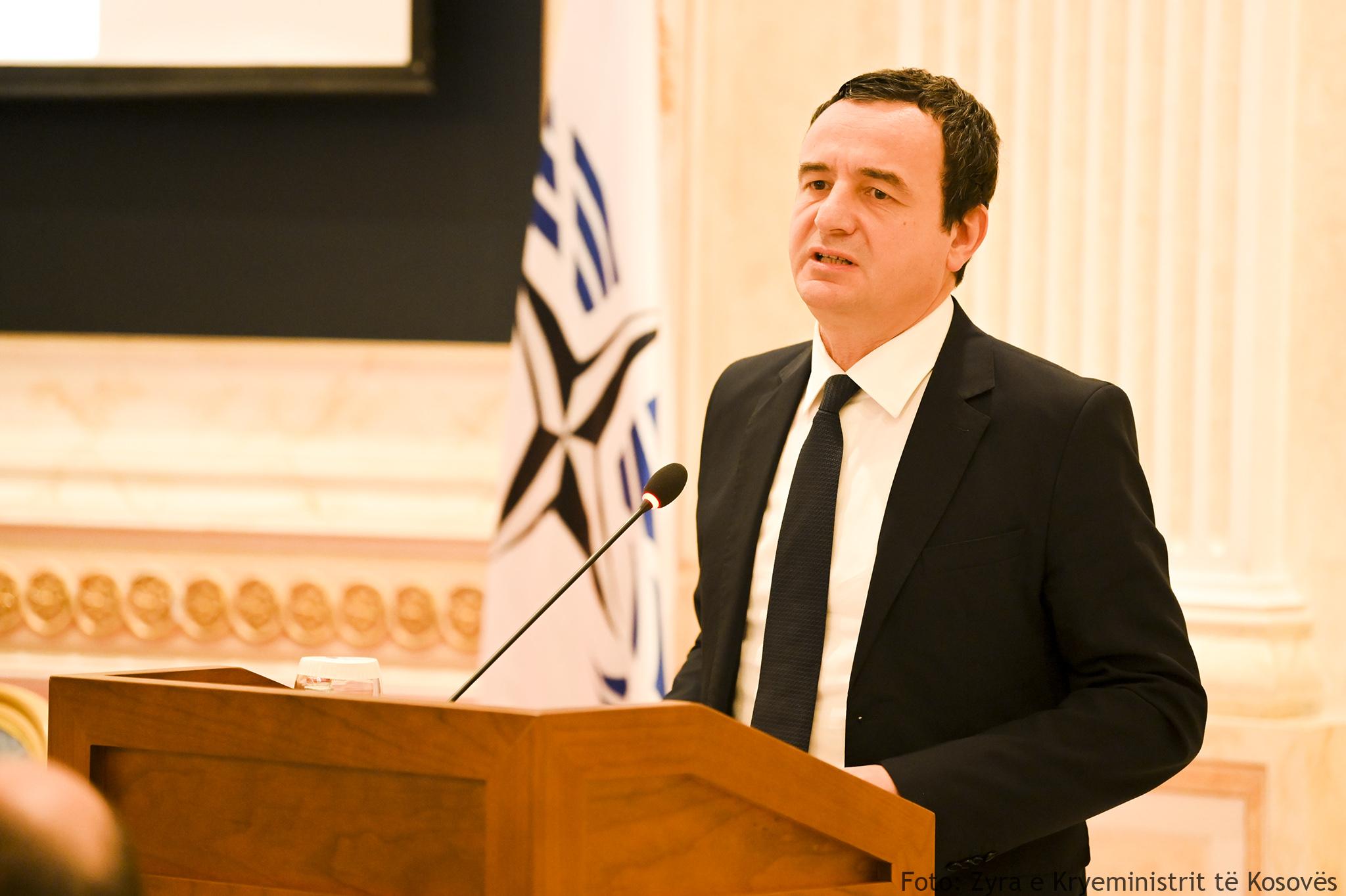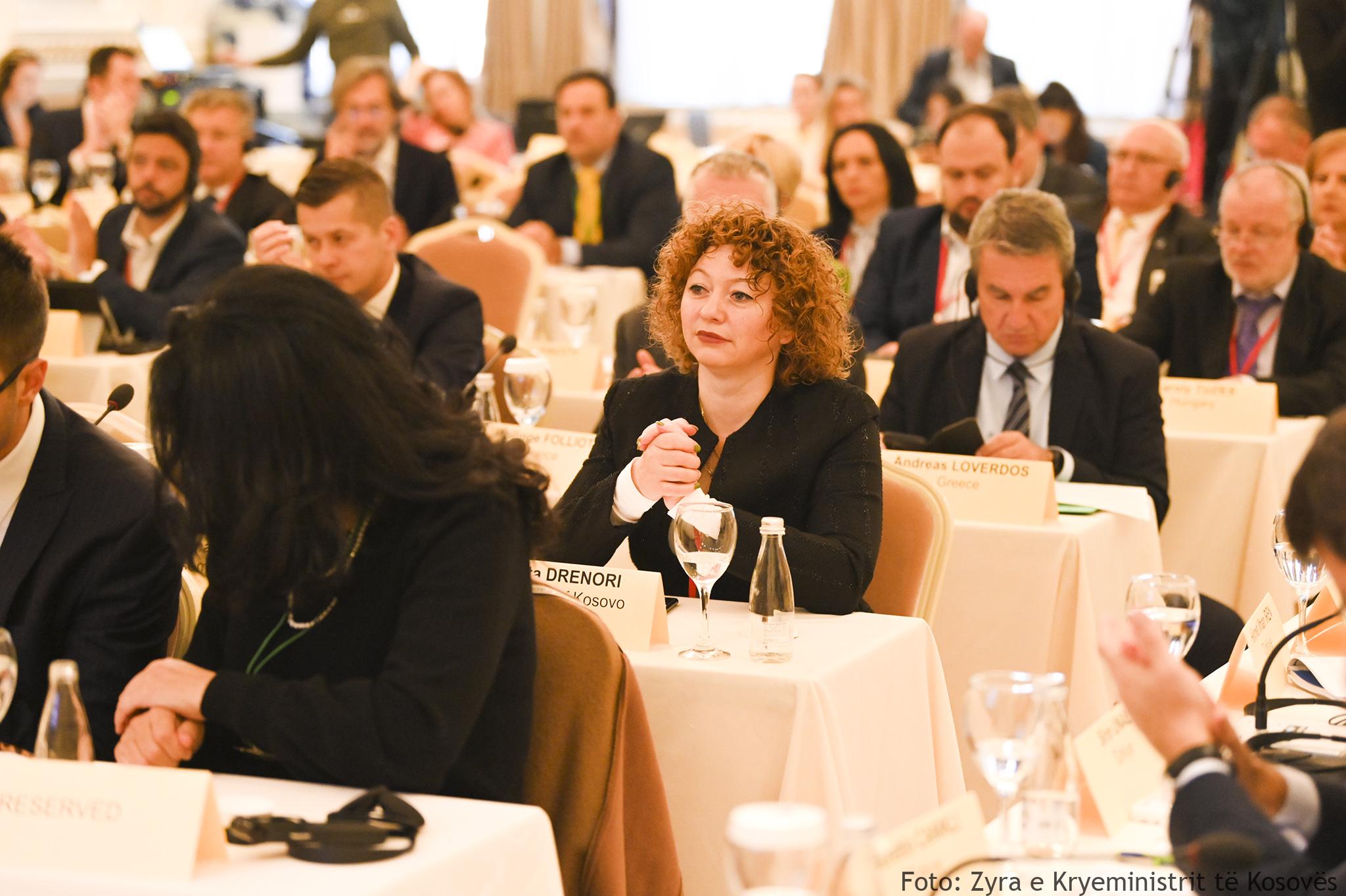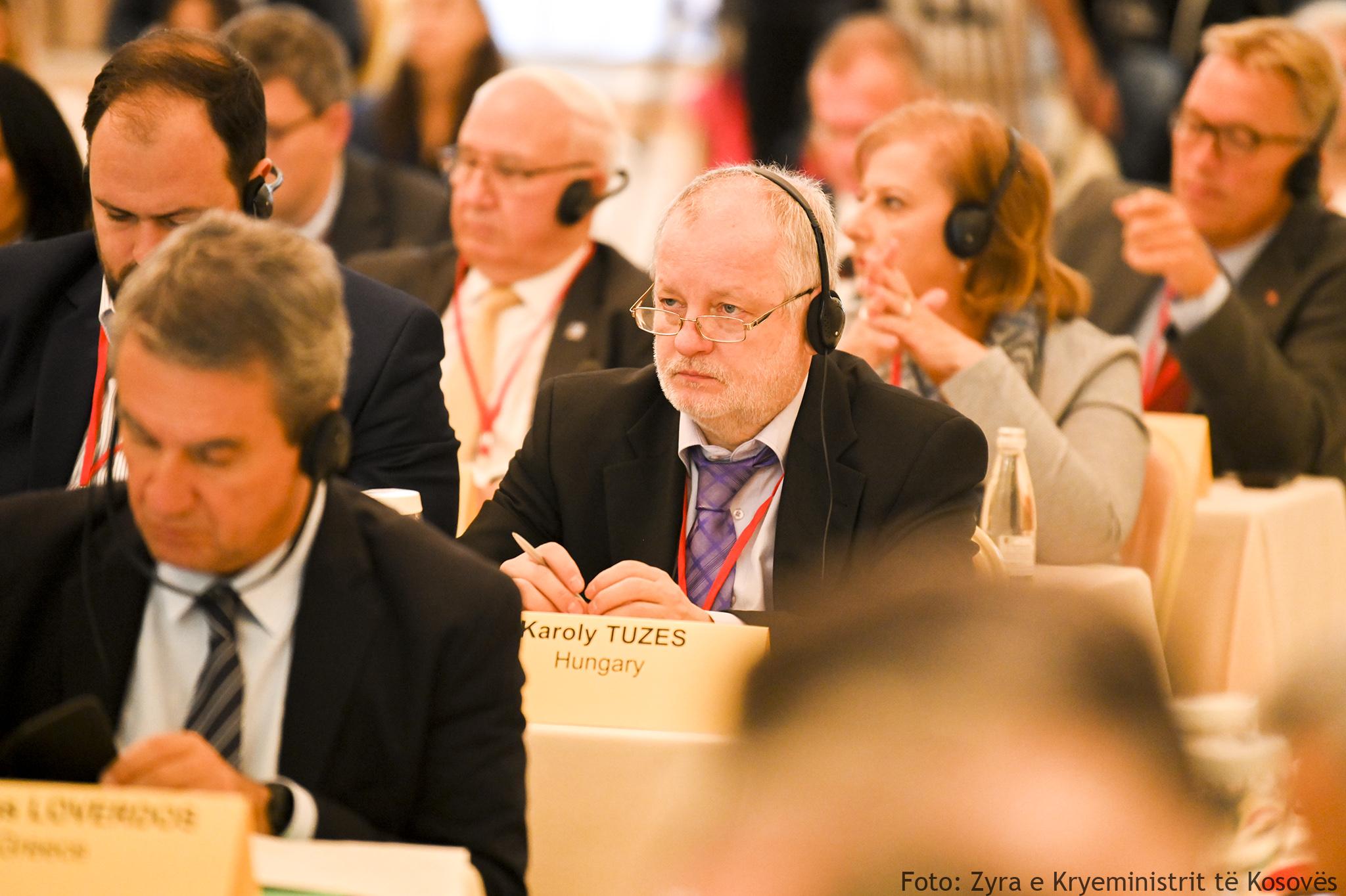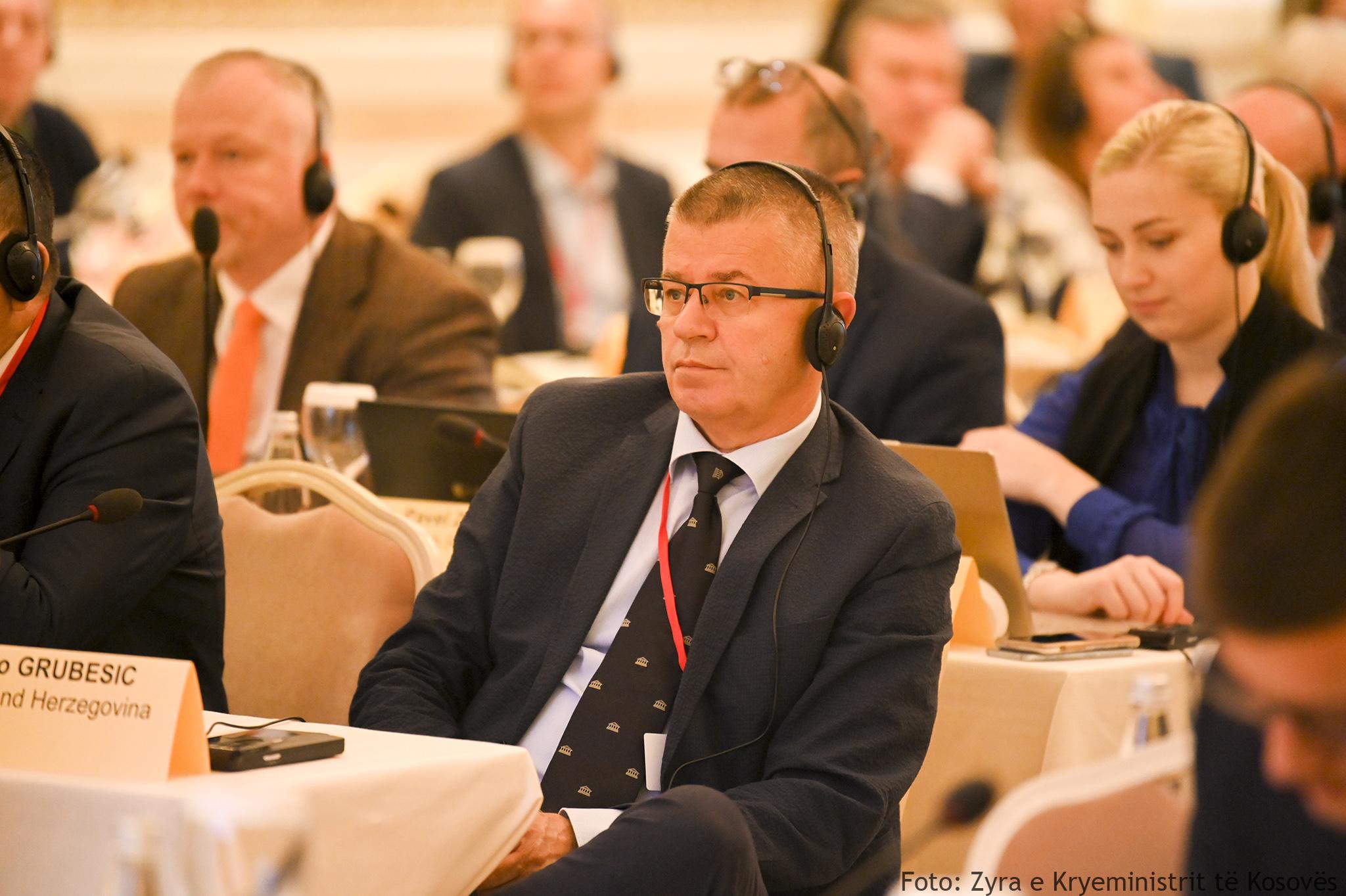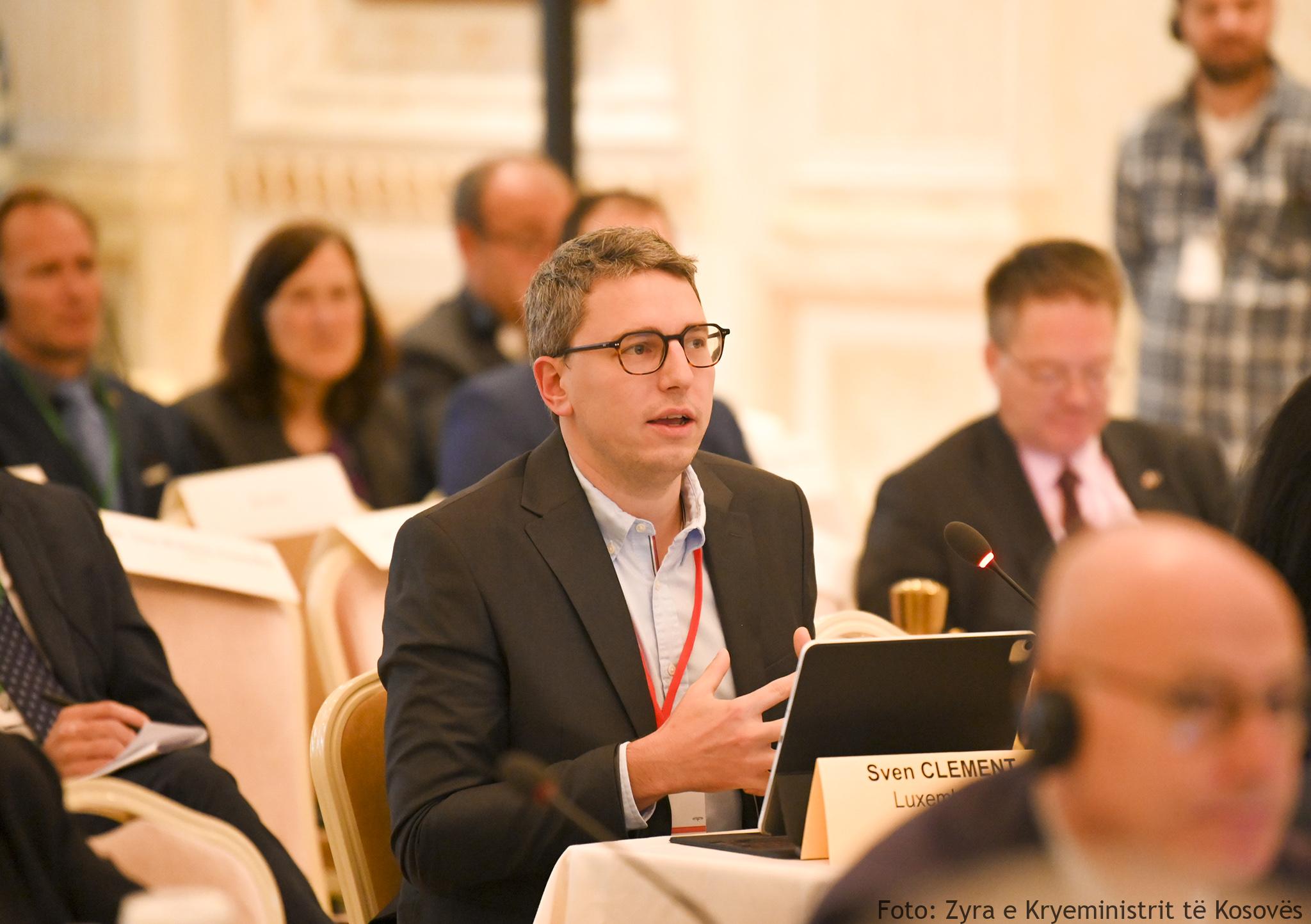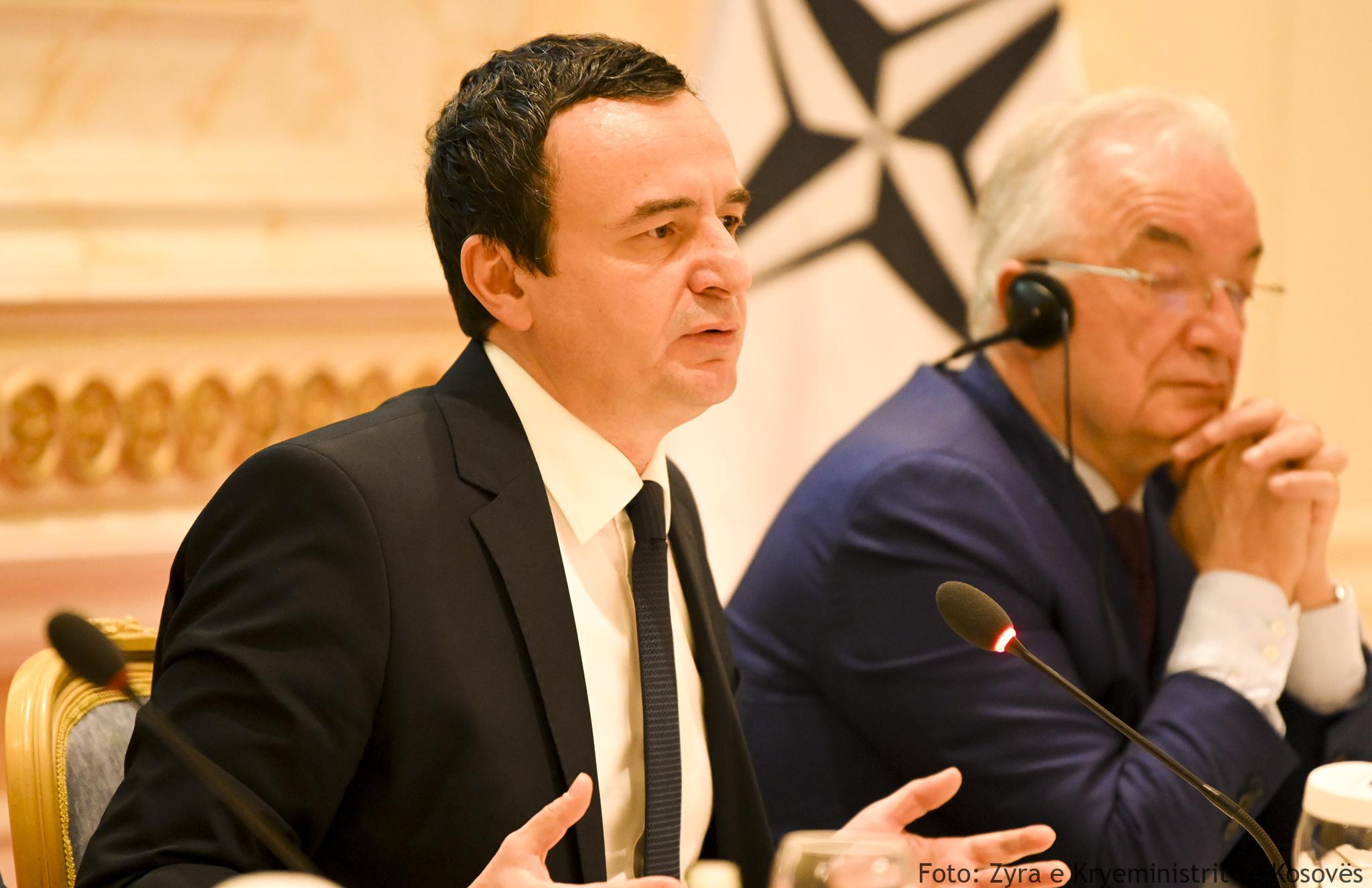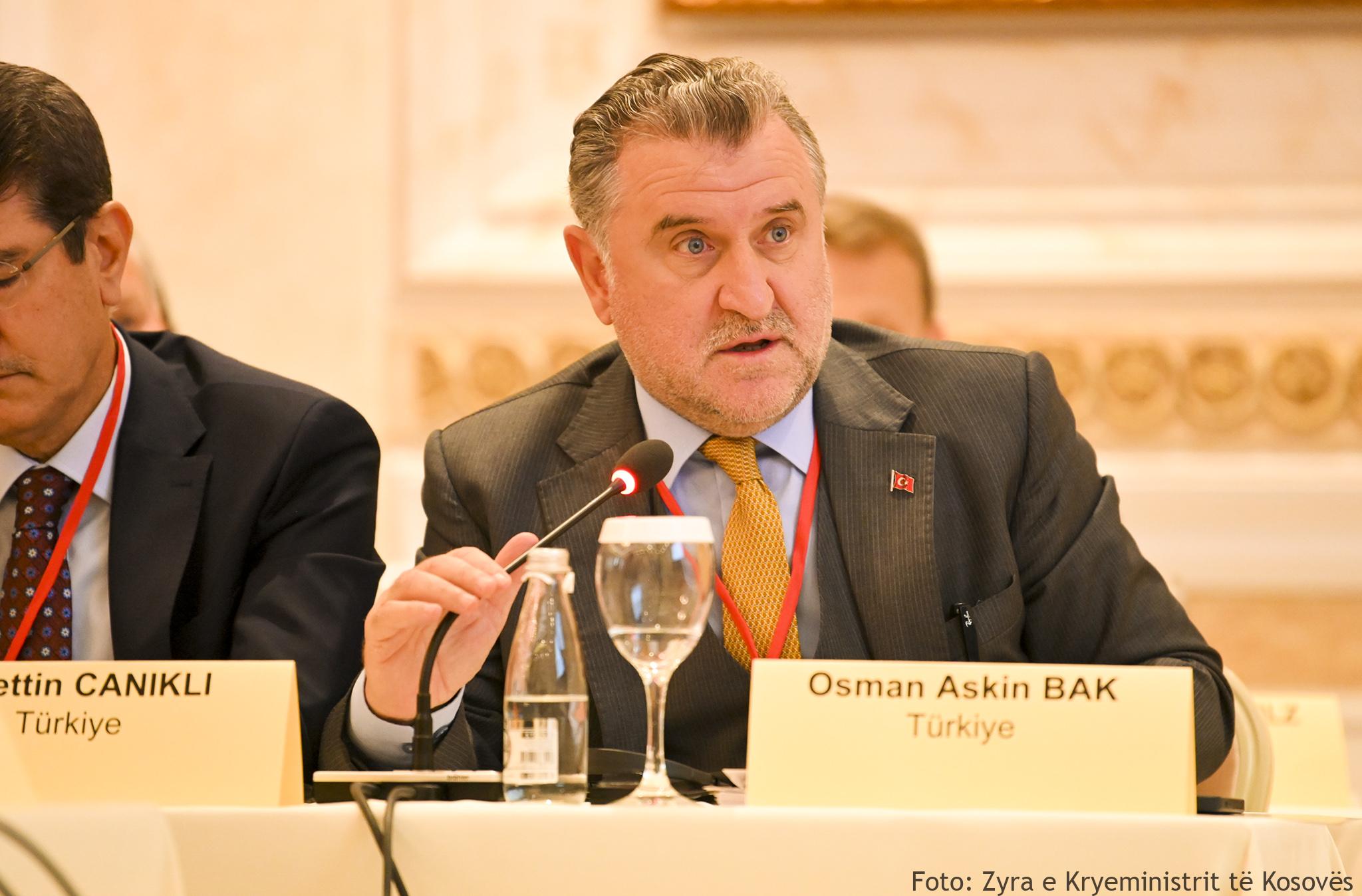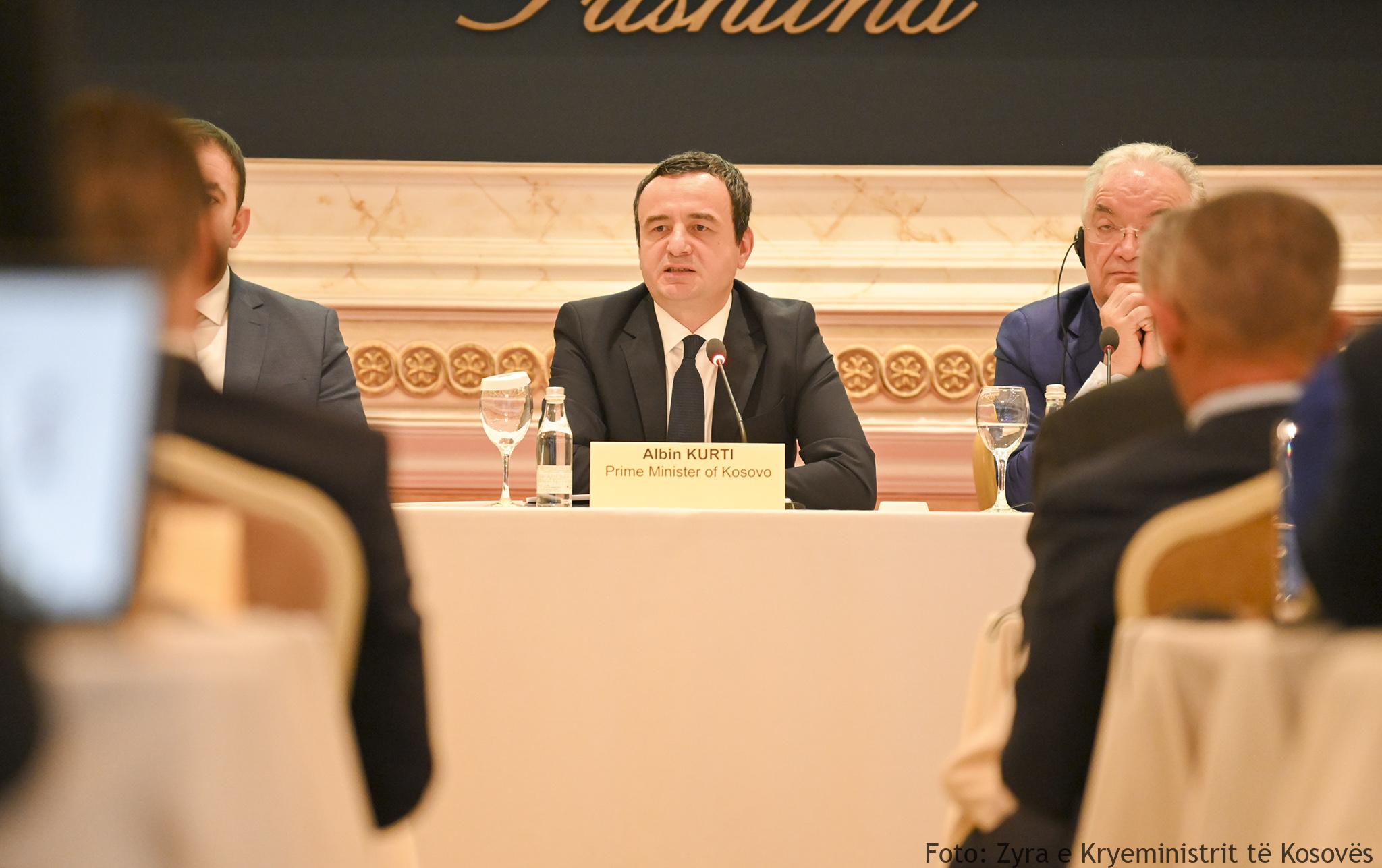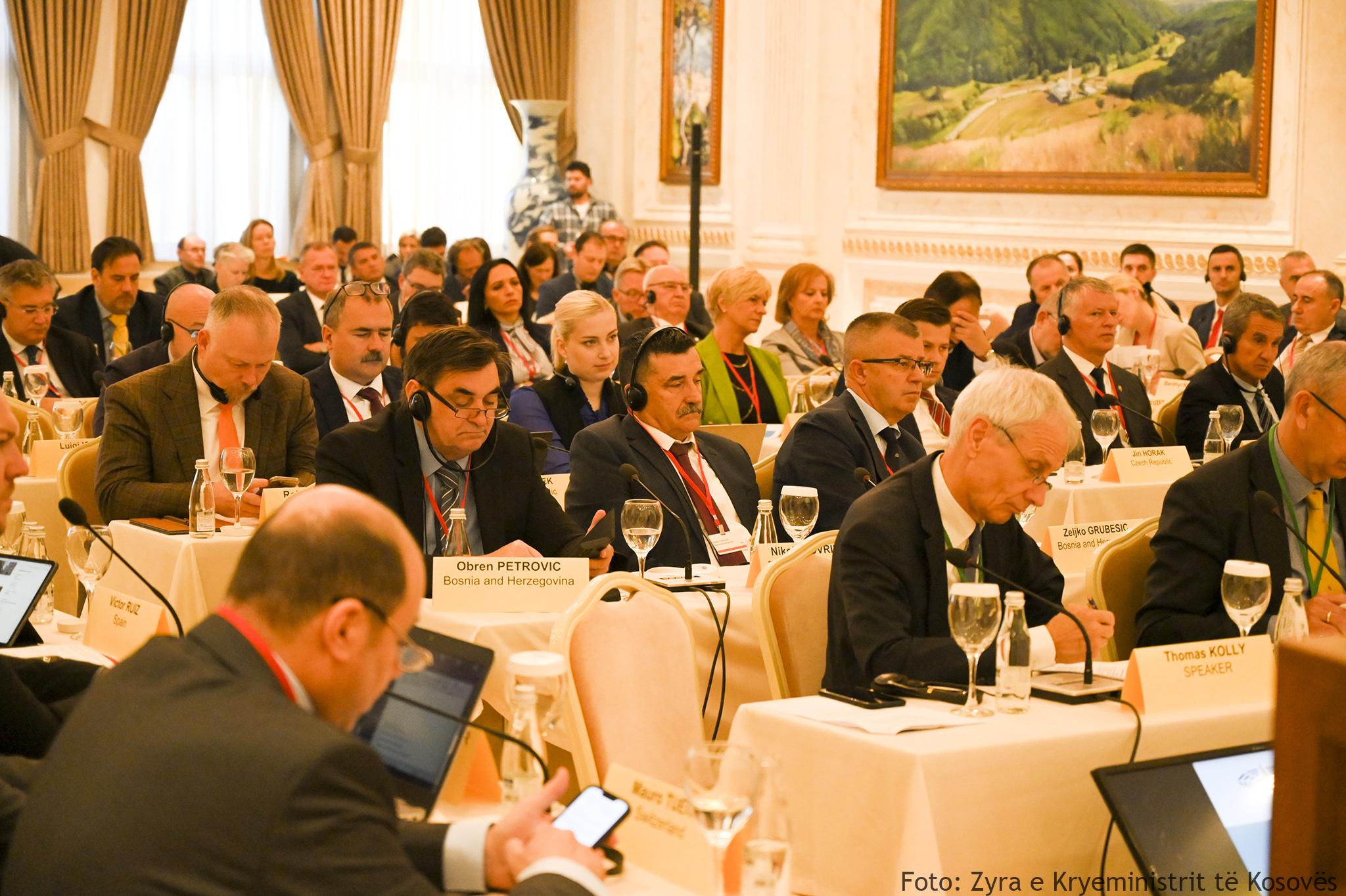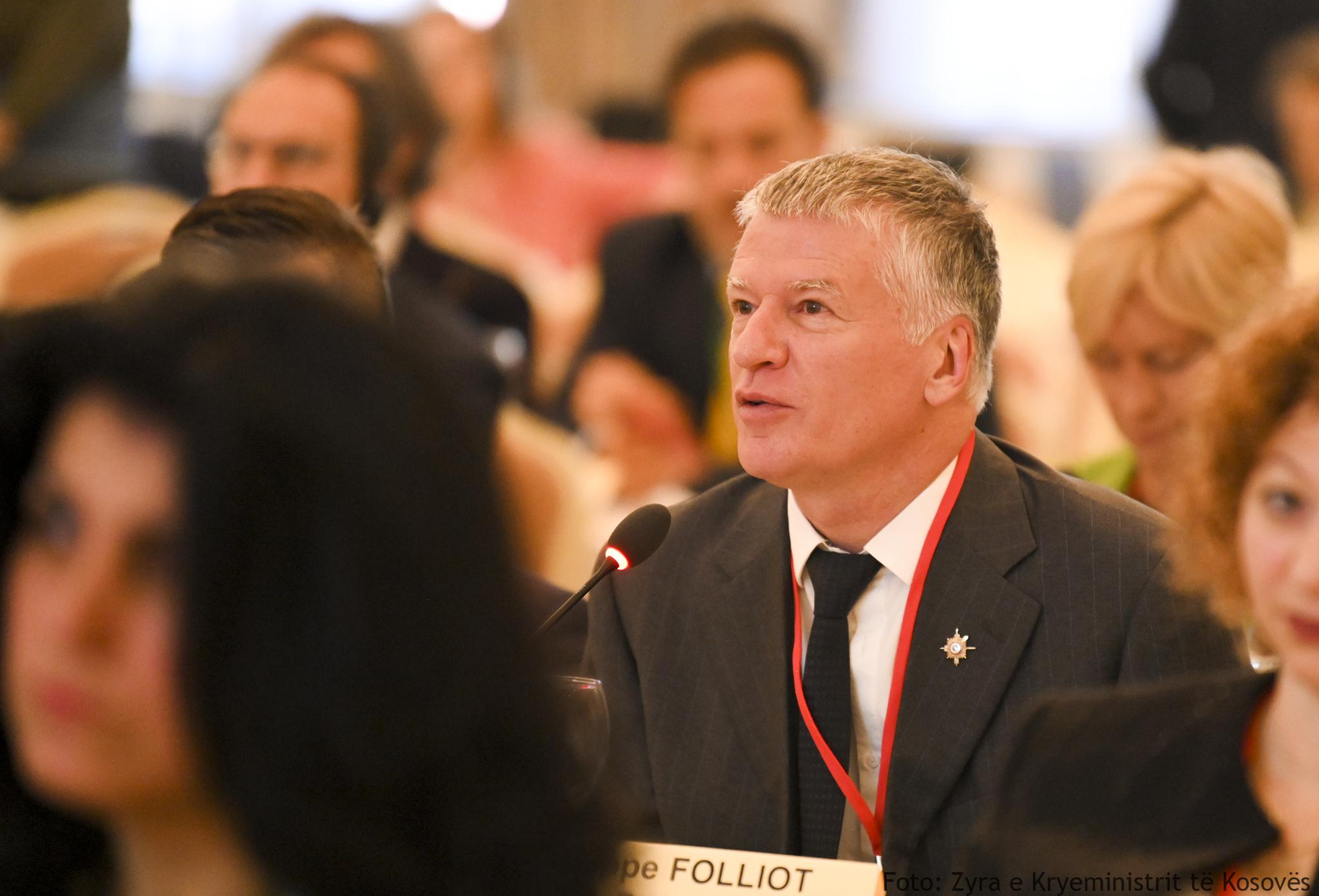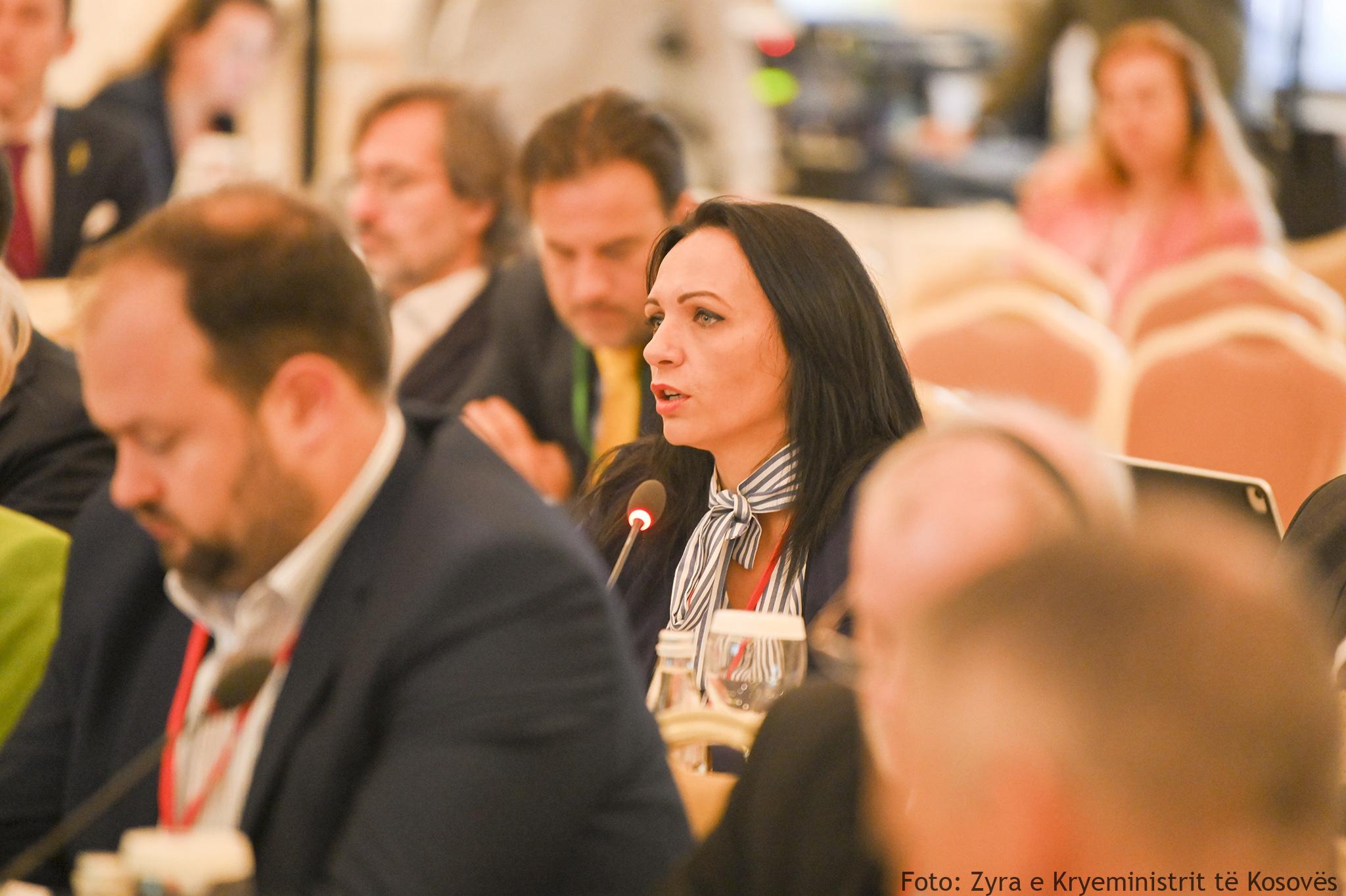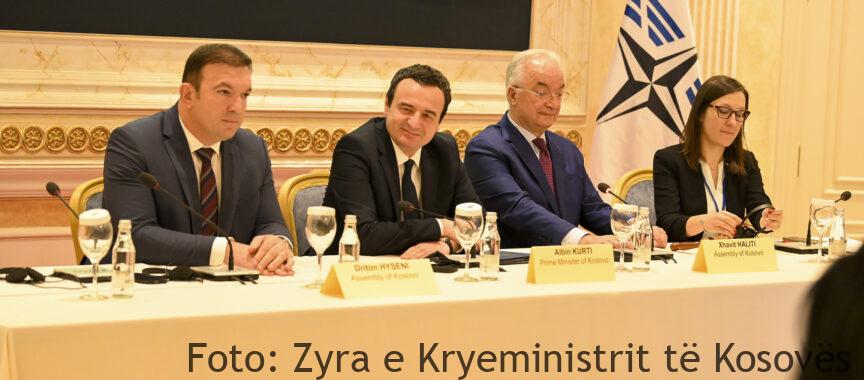Prishtina, 09 October 2022
The Prime Minister of the Republic of Kosovo, Albin Kurti, spoke at the NATO Parliamentary Assembly 102nd Rose-Roth seminar on “Euro-Atlantic integration of the Western Balkans: Prolonged challenges, new realities and future prospects.”
Beginning his speech, Prime Minister Kurti said that NATO, as an organization designed to promote democratic values, build trust and prevent conflicts, continues to remain an alliance of countries that aim to maintain peace and stability at the global level.
In today’s global security environment, democratic values and human society are being seriously challenged by the appearance of old but not dead ideas such as hegemony and fascism, according to Prime Minister Kurti.
“The expansionist and militaristic policy of the Russian Federation, the Chinese tendency for regional military hegemony and global economic hegemony, the Iranian attempt to change the balance of forces in the Middle East, as well as the militaristic threat of North Korea to the Far East, are the best indicators of how serious and fragile the security situation is at the global level,” highlighted Prime Minister Kurti.
In his speech before the vas audience of the seminar, Prime Minister Kurti referred to the Western Balkans as a region with many unresolved problems, saying that not only is the region not immune, but it is extremely vulnerable in terms of stability and security. The political leadership of Serbia, as he emphasized, has maximized the opportunity presented by the change in the strategic security environment, to push forward its primary interest for a Serbia as a regional homogeneity.
The Republic of Kosovo is very clear in its political and strategic orientation towards integration into Euro-Atlantic structures. In this regard, Prime Minister Kurti said that the Government of the Republic of Kosovo prioritizes primarily the promotion of democratic values, the diplomatic engagement for alignment with NATO and the European Union, as well as the construction of defense capacities in accordance with NATO standards.
In this spirit, Prime Minister Kurti underlined that in 2022 his government allocated a budget of EUR 102 million for the Ministry of Defense and the Kosovo Security Force. This figure, as he stated, marks an increase of 52% of this budget line compared to last year, further adding that the aim is to reach the percentage of 2% of GDP during the mandate of the current government, which is an unwritten standard for NATO countries.
Moreover, the Government of Kosovo has been extremely committed to completing the legal framework in order to enable the KSF’s development in line with the armies of NATO countries.
Prime Minister Kurti mentioned the commitment to the Kosovo Security Force building and strengthening through various trainings and under the supervision of NATO partners, highlighting the participation in the “Defender Europe 21″ exercise and the joint deployment of the KSF with the Iowa National Guard units in the Middle East.
Finally, Prime Minister Kurti stressed that the Government of the Republic of Kosovo, and in particular the defense and security institutions, will continue to develop, modernize and prepare together with NATO partners, so that in the near future our country joins NATO and contributes to the promotion of democratic values and peace and security in the world.
Prime minister Kurti’s remarks on the 102nd Rose-Roth seminar of the NATO Parliamentary Assembly
Dear participants of the 102nd Rose Roth Seminar,
Dear members of the NATO Parliamentary Assembly,
Dear deputies and representatives of institutions,
Dear ambassadors, respected partners,
Ladies and gentlemen,
NATO, as an organization designed to promote democratic values, build trust and prevent conflicts, continues to remain an alliance of countries aiming to maintain peace and stability at the global level. NATO is the only political and military alliance that aims to preserve the achievements of human society and advanced democratic values that have as a center of gravity, the life and development of human beings.
In the contemporary global security environment, democratic values and human society are being seriously challenged by the merge of the old, but, not vanished ideas such as hegemony and fascism. The expansionist and militaristic policy of the Russian Federation, the Chinese tendency for regional military and global economic hegemony, the Iranian attempt to change the balance of forces in the Middle East, as well as the militaristic threat of North Korea to the Far East, are the best indicators how serious and fragile is the security situation at the global level.
The Western Balkans, as a region with many unresolved problems, is not only non-immune but is vulnerable in terms of stability and security. Serbia’s political leadership has maximized the opportunity given by the changing strategic security environment to advance its primary interest which is Serbia as regional hegemony. Russian influence in Serbia is different from Russian influence in other countries of the region. Serbia has welcomed Russian influence and is using it to keep under threat the security and peace in this part of Europe. In spite of this we engage under the auspicious of Brussels in a constructive and creative dialog for full normalization of relations with a legally binding agreement centered on mutual recognition.
The latest developments after Russian aggression and military invasion in Ukraine are proving the theories of war which clearly emphasized that, while the character of war changes, because doctrine, technology, and military culture change, the nature of war remains unchanged in essence, because it is politically driven, fundamentally human, dominated by violence and more destructive than any other human activity. Therefore, there will always remain the need to build and develop defense and security alliances and capabilities.
Today, more than ever, NATO countries must contribute to maintaining cohesion within the alliance but also to NATO enlargement. I believe that enlargement and cohesion do not exclude each other. They go hand in hand.
The enlargement of NATO, in the military aspect, means an increase of combat readiness power, while in the geo-strategic aspect, it means the enlargement of NATO’s geographical borders.
The Republic of Kosova is very clear in its political and strategic orientation towards integration into Euro-Atlantic structures. In this aspect, the Government of the Republic of Kosova has among its main priorities; the promotion of democratic values, the diplomatic engagement for membership in NATO and the European Union, as well as the building of defense capabilities in accordance with NATO standards.
In order to build and increase defense capabilities, the Government of Kosova for the fiscal year 2022 has allocated a budget of 102 million for the Ministry of Defense and the Kosova Security Force. This number might not seem big but it marks an increase of 52% of this budget line compared to the last year, and we aim to reach the percentage of 2% of GDP within the mandate of this government, which is an unwritten standard for NATO countries for the defense budget. We are now at 1.4 % of GDP.
Moreover, the Government of Kosova has been extremely committed to completing the legal aspect in order to enable the development of the KSF in line with the armed forces of NATO countries.
The Kosova Security Force is being built, trained, and developed with the support and continuous mentoring of its development by our partners in NATO, with special emphasis on the United States, Germany, Turkey, the United Kingdom, and other partner countries. Last year, our country for the first time was among the hosting nations – amongst 16 hosting nations- during the large-scale exercise “Defender Europe 21” planned and conducted by the US Army for Europe and Africa. We participated with 330 soldiers of our Kosova Security Force.
Last year, our country for the first time was also participating in co-deployment together with IOWA National Guard units in the Peace Support Operation “Inherent Resolve” in the Middle East, together with the US Army. The institutions of the Republic of Kosova proved that they are capable of interoperating with the allies even in situations previously unknown to us, such as the support of partners in the sheltering of Afghan refugees in the Republic of Kosova. So far, we have received around 1800 Afghan refugees and 410 of them are still being sheltered in our country.
Our contribution to peace and stability in the world, alongside our partners, will continue in this year and next year as well, with other co-deployments of Kosova Security Force units.
In order to increase interoperability with partners and build combat capabilities, the Kosova Security Force is continuing with intensive preparatory efforts for participation in the next largest exercise, the “Defender Europe 23” exercise that will take place in May and June of next year in different parts of Europe, including our country. Before and after the Russian aggression in Ukraine, the Government of Kosova cooperated closely with NATO partners to contribute in support of the struggle of the people of Ukraine against Russian aggression. The Ministry of Defense and the military leadership of the KSF participate on a regular basis in the meetings of the contact group for Ukraine.
The Government of the Republic of Kosova, and in particular the defense and security institutions, will continue to develop, modernize and prepare together with our NATO partners with the aim that in the near future, our country will join NATO and give a contribution to the promotion of democratic values and peace and security in the world.
Thank you.
Last modified: October 10, 2022
